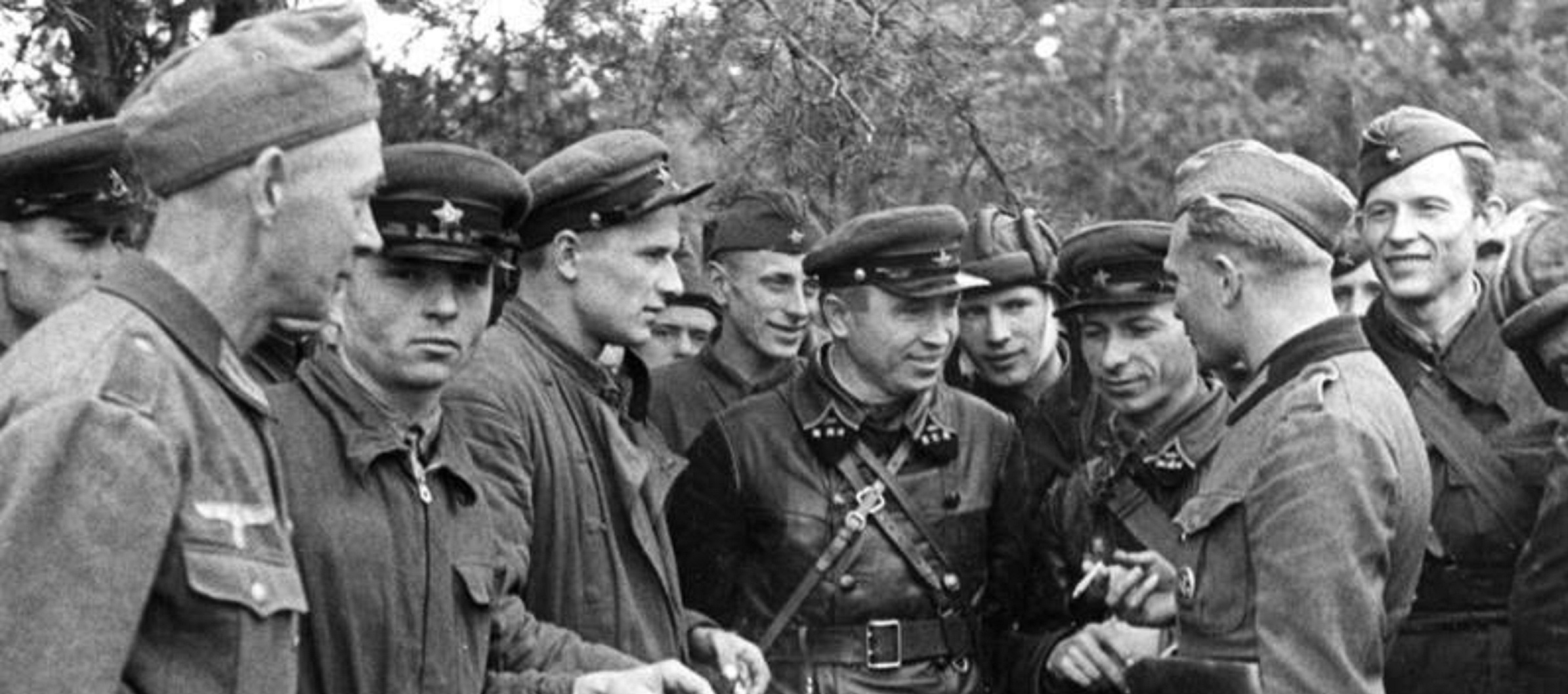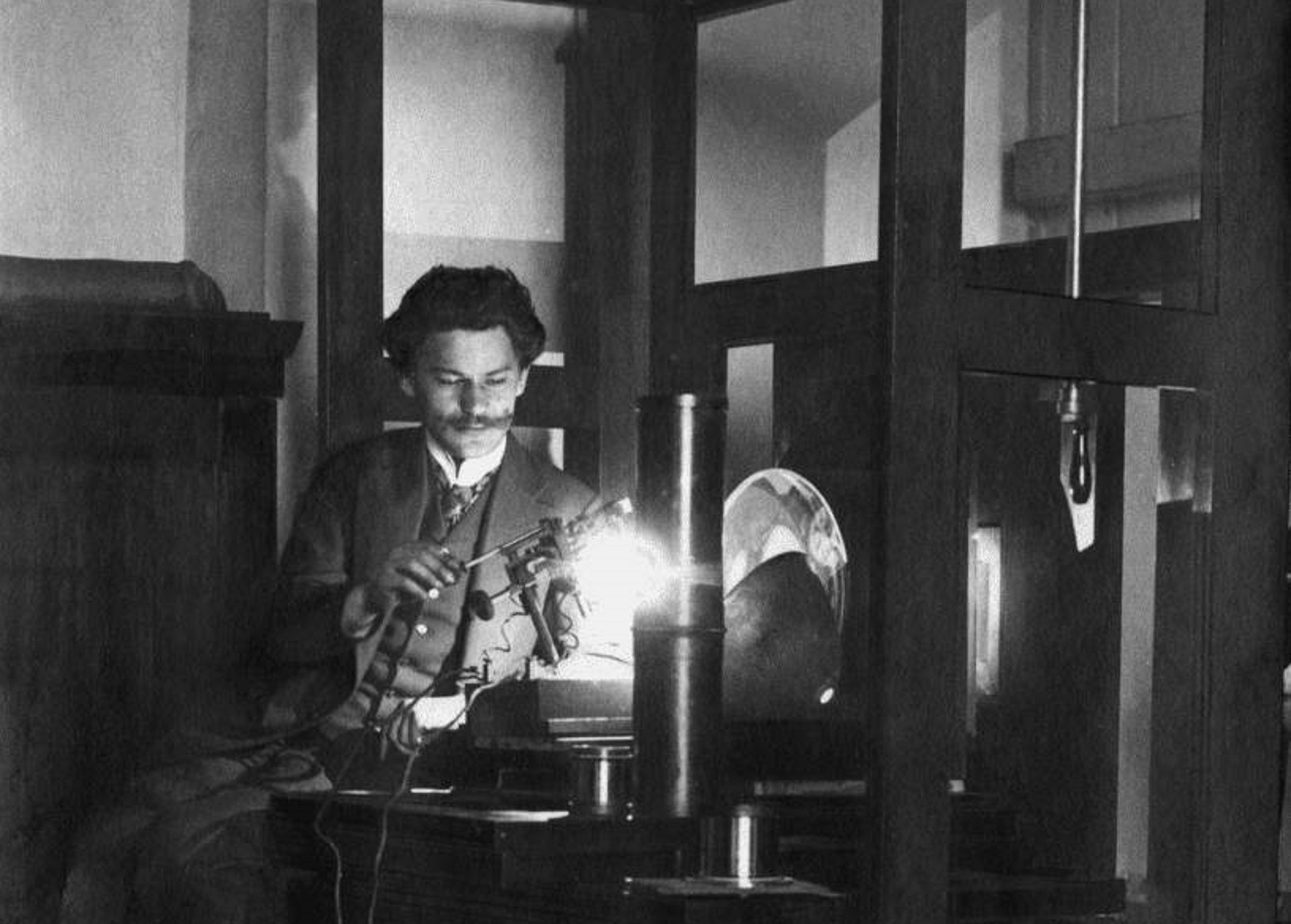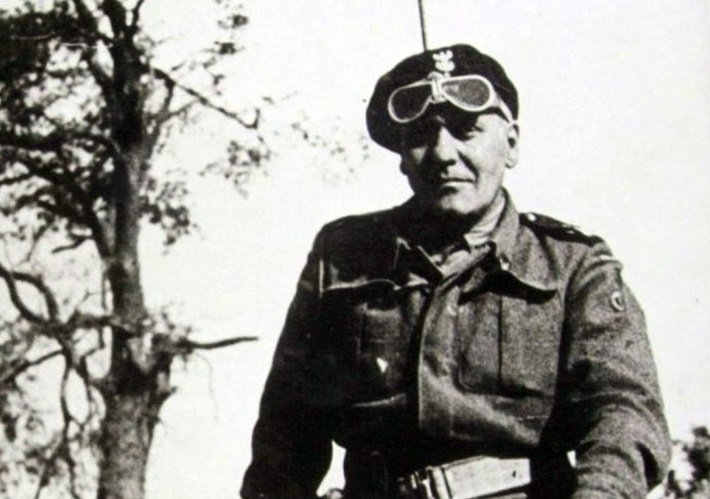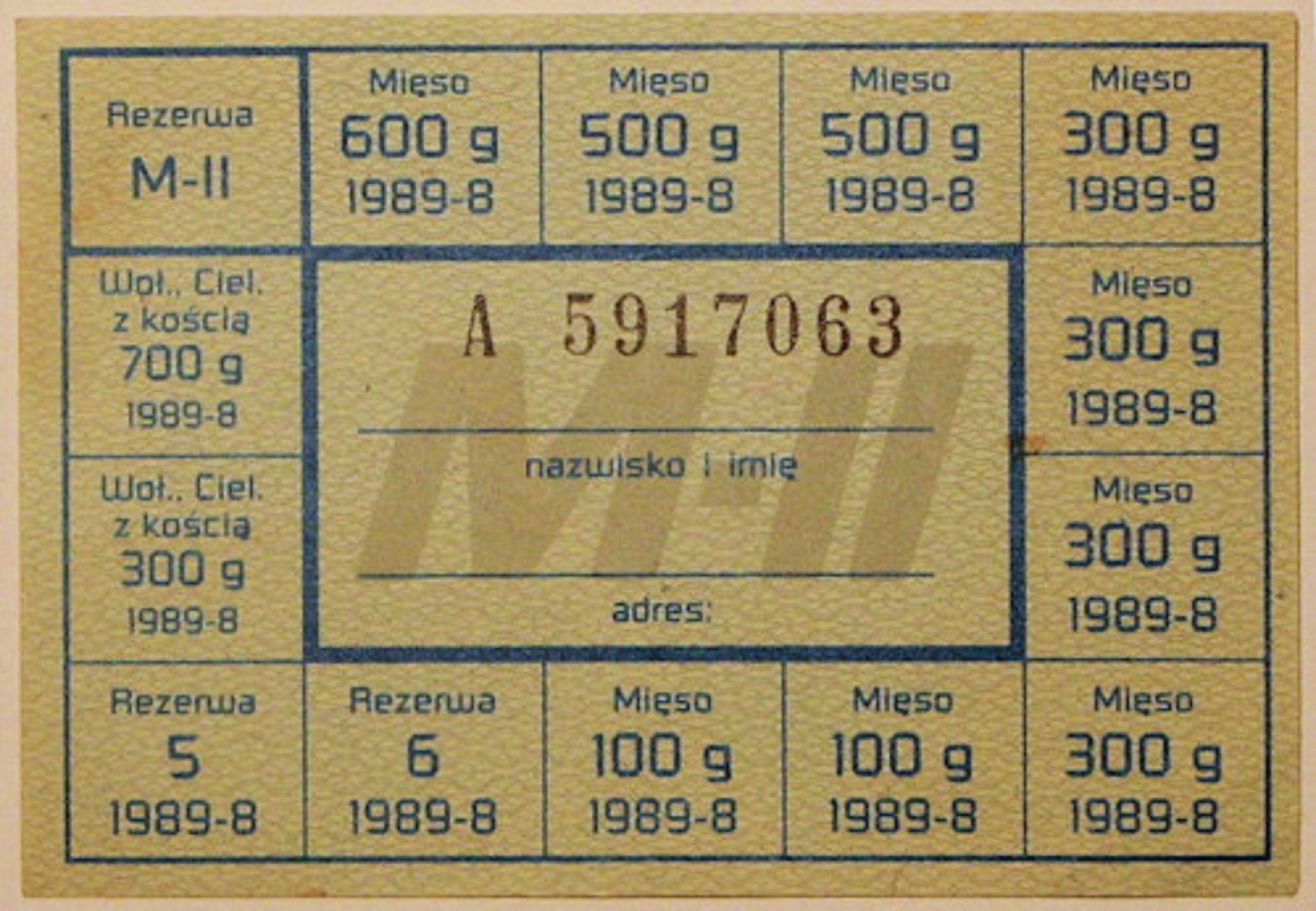The essay by President of Russia Vladimir Putin has three dimensions. First, it is a lecture on Russian historical policy addressed to foreign countries. Secondly, it is an attempt to re-interpret the past (i.e. the Second World War) an attempt made by a politician acting as a historian. Thirdly, there is a political layer in the text, because the author draws postulates regarding a new order in the world. He wishes to establish (in a way next to the United Nations) a special system of cooperation between the five nuclear powers, modeled on the once negotiated Pact of Four. I will not deal with these demands, I will focus on the first two points.
by Marek Kornat
A discussion between a historian and the leader of the state (in this case, an imperialist dissatisfied with his position in the international arena) – has no real goal, because while giving such an essay Putin is not aiming for historical truth, nor is he searching for it. However, I am raising this issue, asking myself what this text brings to our knowledge of Russian historical policy, the assumptions of which have long been known to us. And as this is probably the main question – if not the only really important one, an analysis made by a historian seems advisable.
*
Discussing the lives of Soviet soldiers and Soviet society in general, Putin writes that “what they shared was the love for their homeland, their Motherland. That deep-seated, intimate feeling is fully reflected in the very essence of our nation and became one of the decisive factors in its heroic, sacrificial fight against the Nazis.” The statement does not stand out from the previous ones made by Putin. The glorification of Soviet soldiers is a typical narrative of the Great Patriotic War. As for the truth – one could certainly argue about it. Since such great patriotism was fundamental to all “Soviet people” (in Putin’s words), then what was the need for the barrages fired by the NKVD at (massive numbers) Red Army soldiers fleeing from the front.
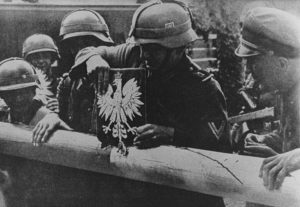
Putin places the main cause of the war that broke out in 1939 in the injustice of the Versailles treaty. The system somehow organically generated the Second World War. “The Treaty of Versailles,” states Putin, “became a symbol of grave injustice for Germany. It basically implied that the country was robbed, forced to pay enormous reparations to the Western allies that drained its economy.” In fact, Germany was not robbed, although the loss of part of Upper Silesia (the industrialized part) and the separation of the Saar Basin for 15 years – was painful. We must not forget, however, that it was not in any way a “Carthaginian peace”, as the Versailles treaty was described by German propaganda of the Weimar and Nazi times. The economic foundations of Germany’s power were not destroyed. Defeated Germany emerged from the war as a country potentially stronger than victorious France. In the period of prosperity after the Locarno Treaty (1925–1930), the standard of living in Germany increased so much that it was higher than in Wilhelmine Germany (1888-1918). The reparations paid to the Allies under the Dawes Plan (1924–1929) balanced the loans they received mainly from the United States to “kick-start” the economy. In addition, the territories granted in Versailles to Poland are, with the exception of Upper Silesia, territories robbed earlier by Prussia in an alliance with Russia on the initiative of the latter. Contemporary Russia, however, refuses to accept the fact that after the Great War a new geopolitical order was established without its participation, which resulted from the Versailles Treaty. The fact that all the nations of Intermarium – except for an aggrieved Hungary – were the beneficiaries of the treaty, and were given the opportunity to establish independent countries, is a big deal. But Russia, along with its leaders, obviously does not want to admit it.
The Second World War was caused and initiated by the Munich Conference – this is the main thesis of today’s Russian government. “In the case of the Munich Betrayal,” writes Putin, “in addition to Hitler and Mussolini, it involved British and French leaders, Czechoslovakia was taken apart with the full approval of the League of Nations. Munich destroyed even the formal, fragile guarantees that remained on the continent. It showed that mutual agreements were worthless. It was the Munich betrayal that served as the ‘trigger’ and made the great war in Europe inevitable.” It is true that one must not underestimate the policy of appeasement in bringing about the destruction of the peace, but the tactical alliance of two totalitarian powers (Germany and the USSR) also played a decisive role. No power could resist them if we consider that both outpaced all other countries in militarization. The Russian leader does not want to or cannot admit it.
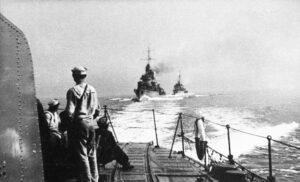
Events at Munich brought a correction to the peace but not its destruction. At the root of this undertaking, which took place on 29 September 1938, was the idea of changing the territorial decisions of the Versailles Treaty. Munich rightly deserves condemnation, but there is no reason to demonize the creators of this transaction. It is true that Germany’s power after this conference increased remarkably, but Hitler did not receive carte blanche from the Western powers for further conquests. This is what he complained about to Prime Minister Neville Chamberlain and eventually (it seems) he doubted the idea that an alliance with Great Britain would materialize. The most amazing thing is that the author of this article probably does not know that Poland did not welcome the Munich Conference with enthusiasm. It did not suit Poland to observe the new pact of four in action. In Warsaw, it was well understood that the disputed borders with Germany could one day become the subject of a similar transaction.
“Unlike many other European leaders of that time, Stalin did not disgrace himself by meeting with Hitler who was known among the Western nations as quite a reputable politician (…),” writes Putin. This is a subversive argument. Someone who did not meet with someone else whom we condemn today – was not “tainted”. But what of it, since he did everything he wanted via his associates. Hitler did not have to go to Moscow, because his foreign minister Joachim von Ribbentrop went there. Later Stalin sent Molotov to Berlin. It seems that one might expect more serious arguments from the imperialist leader in order to defend a man who in his eyes is a great statesman.
“Poland was also engaged in the partition of Czechoslovakia,” says Putin, “along with Germany. They decided together in advance who would get which Czechoslovak territories. On September 20, 1938, Polish Ambassador to Germany Józef Lipski reported to Minister of Foreign Affairs of Poland Józef Beck on the following assurances made by Hitler: ‘…in case of a conflict between Poland and Czechoslovakia over our interests in Teschen, the Reich would stand by Poland.’ The Nazi leader even prompted and advised that Poland started to act ‘only after the Germans occupy the Sudetes.’ Poland was aware that without Hitler’s support, its annexationist plans were doomed to fail. I would like to quote in this regard a record of the conversation between German Ambassador to Warsaw Hans-Adolf von Moltke and Józef Beck that took place on October 1, 1938, and was focused on the Polish-Czech relations and the position of the Soviet Union in this matter. It says: “Mr Beck expressed real gratitude for the loyal treatment accorded to Polish interests at the Munich conference, as well as the sincerity of relations during the Czech conflict. The Government and the public [of Poland] fully appreciated the attitude of the Furhrer and Chancellor.” This whole argument is based on an untruth. On the partition of Czechoslovakia, there was simply no previous Polish-German plan. It has been known for a long time. Poland had tried to pick up Zaolzie [lands beyond the Olza River] on its own, obviously taking advantage of Germany’s action in the Sudeten case. Poland conducted parallel activities, observing the behavior of the Reich government and asking itself whether the Czechs would fight.
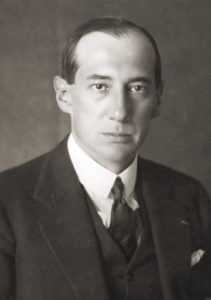
Noteworthy is only this mysterious fragment which contains the recording of the conversation between Ambassador Hans-Adolf von Moltke and Beck. It is not clear, however, what this was about. Who was recording these interlocutors? The conversation had to take place in the building of the Polish Ministry of Foreign Affairs, because the diplomatic protocol stated that the minister could not visit ambassadors (or deputies), but they were to visit him. Unless there is any misunderstanding here about the reading of the German files (because the Russian leader draws on them), the matter is quite intriguing. However, I do not undertake to explain it.
About the British-French-Soviet negotiations in the summer of 1939, Putin only said what Soviet propaganda has repeated thousands of times. Thus: “Poland played its role in the failure of those negotiations as it did not want to have any obligations to the Soviet side. Even under pressure from their Western allies, the Polish leadership rejected the idea of joint action with the Red Army to fight against the Wehrmacht. It was only when they learned of the arrival of Ribbentrop to Moscow that Beck reluctantly and not directly, but through French diplomats” agreed to some kind of Polish-Soviet cooperation, but as to the staff arrangements, he was to approve of them only when the war broke out. What he attempts is to suggest that the British-French-Soviet alliance would be concluded if the Polish government admitted the Red Army to its territory. The problem is that such a decision would have been a death sentence against one’s own country.
The leader, or rather the dictator of today’s Russia is trying to moralize. And he writes: “The blame for the tragedy that Poland then suffered lies entirely with the Polish leadership, which had impeded the formation of a military alliance between Britain, France and the Soviet Union and relied on the help from its Western partners, throwing its own people under the steamroller of Hitler’s machine of destruction.” What can a Polish historian say about this? Well, letting Soviet troops into the country would be a crime that would weigh on the consciences of those ruling Poland in 1939, and their faith in Soviet help against Germany would be an even greater crime.

When emphasizing Poland’s refusal regarding the “marching” of the Red Army, Putin justifies Stalin’s decision to settle with Hitler as a forced solution. “In these circumstances, the Soviet Union signed the Non-Aggression Pact with Germany. It was practically the last among the European countries to do so. Besides, it was done in the face of a real threat of war on two fronts – with Germany in the west and with Japan in the east, where intense fighting on the Khalkhin Gol River was already underway.” This is the comment of the leader of today’s Russian state to the criminal pact of Hitler-Stalin, which cost the nations of Central and Eastern Europe so much. Sapienti sat.
Nothing can undermine, obscure or refute the obvious truth that for the Soviet dictator the alliance with Germany was the most desired scenario. The most advantageous of all strategic options. The most successful turn of events in the complex international circumstances of the summer of 1939. It is testified to by statements, known to historians, of the Soviet dictator to Georgi Dymitrov in September 1939 and to Anthony Eden in December 1941 .
Throughout the article, the most unpleasant words are about the Soviet conquest of the Baltic States. Putin writes: “In autumn 1939, the Soviet Union, pursuing its strategic military and defensive goals, started the process of incorporation of Latvia, Lithuania and Estonia. Their accession to the USSR was implemented on a contractual basis, with the consent of the elected authorities. This was in line with international and state law of that time. Besides, in October 1939, the city of Wilno and the surrounding area, which had previously been part of Poland, were returned to Lithuania. The Baltic republics within the USSR preserved their government bodies, language, and had representation in the higher government entities of the Soviet Union.” According to this reasoning, the Baltic nations wanted to join the USSR and the government of that country simply accepted them. This is not true.
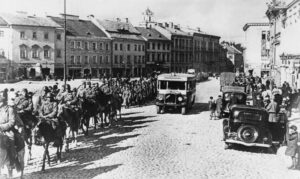
It is unclear what some formulations mean in Putin’s article. For example, it’s difficult to understand what it means to say that Hitler was “a welcome guest in the European capitals.” Apart from Mussolini’s Rome, the German leader was nowhere to be seen before the outbreak of war. Was he expected as a longed-for guest? I have great reservations over this. Let me just add that according to the survey of Hermann Rauschning (then the president of the Senate of the Free City of Gdańsk) in December 1933 regarding a Hitler-Piłsudski meeting somewhere on a special train on the Polish-German border did not meet with any interest from the Polish side.
According to Putin, the Munich Conference passed the partition of Czechoslovakia “with the full approval of the League of Nations Council.” Such an assessment is a complete misunderstanding. During this period, the League of Nations collapsed completely and could not decide or condemn anything. In September 1938, fruitless discussions were held in Geneva. However, there was no approval for the partition of Czechoslovakia from the League of Nations.
The article of Putin unfortunately contains unacceptable insinuations. “Besides, we do not know if there were any secret “protocols” or annexes to agreements of a number of countries with the Nazis. The only thing that is left to do is to take their word for it.” It is a common knowledge, especially to diplomacy historians, about the archives of the German Ministry of Foreign Affairs taken over by the Allies. Many of the documents were selected from these files and published as the multi-volume series The German Documents on Foreign Policy . If the non-aggression declaration between Poland and the German Reich was accompanied by some secret protocol – it would have been identified and published long ago and subjected to analysis by historians. In such a case, archives cannot be “cleaned”. One doesn’t have to take their word for it. Insinuations will not help. Anyway, the historian is not allowed to take anybody’s word for it. If, after the Second World War, even a trace of a secret Polish-German agreement from 1934–1938 was found, it would be a phenomenal argument in the hands of critics of minister Beck’s policy and diplomacy. Soviet anti-Polish propaganda would be the main beneficiary of such a “discovery”.
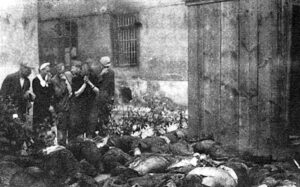
It is not true that “in September 1939, the Soviet leadership had an opportunity to move the western borders of the USSR even farther west, all the way to Warsaw, but decided against it,” according to Putin. Germany accomplished its military goals using tactics of “blitzkrieg”, which Poland, abandoned by its allies, could not successfully oppose. Hitler and Ribbentrop did not even think about implementing the secret protocol signed on 23 August 1939 and dividing Poland according to the rivers Narew-Wisła-San. The Soviets had to agree to a new delimitation – on the Bug river. Stalin and Molotov did not condescend to the Poles in any way. They received just what Hitler gave them. Hitler was playing the situation out. The only thing that the Soviets managed to negotiate was that Germany pledged not to create an incomplete Polish state under the protectorate of Berlin.
In the light of what we have already said, it is hardly surprising that Putin maintains that “by September 17, the military and political leaders of Poland had fled to Romania, betraying its people, who continued to fight against the invaders.” One can only say that the sense of success among Soviet leaders would undoubtedly be greater if the NKVD managed to capture Polish ministers with the President of the Republic and Commander in chief of the Army. However, this did not happen. A year later, the Soviets succeeded in capturing the leaders of Latvia and Estonia, while the Lithuanian President Antanas Smetona managed to escape to East Prussia.
In some places of his narrative, Putin is even right. However, this does not change much in assessing the historical value of his text. For example, he writes: “It is unfair to claim that the two-day visit to Moscow of Nazi Foreign Minister Ribbentrop was the main reason for the start of World War II.” Indeed, visits do not determine the fate of the world, but secret agreements – do. And the aim of the visit was to negotiate a secret system, and this system was criminal.
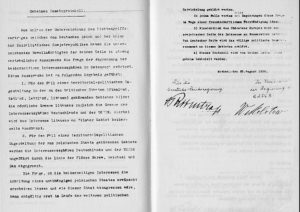
Against the background of what can be read in the article in “National Interest”, the Polish historian can happily note only two statements. Putin managed to make a general statement about the “heroic resistance of the Polish army” in the September 1939 defense campaign. These are unexpectedly warm words on Poles. But it was immediately weakened by the remark that “on September 8, 1939 – only a week after the war broke out – the German troops were on the approaches to Warsaw.” There is of course no mention that they were repulsed and the city was captured on 28 September, the same day that Ribbentrop and Molotov signed the second pact connecting their friendly countries. In another place, in turn, Putin speaks of the “shameful phenomenon” of collaboration, and mentions such symbolic figures as “Pétain, Quisling, Vlasov, Bandera, their henchmen and followers,” who “though (…) disguised as fighters for national independence or freedom from communism – are traitors and butchers.” When I was reading these words, I was already expecting the names of Polish politicians. But no… This is not bad either. Even in this passage, however, it is stated that the collaboration took place “in all European countries”. Well, it did not. There was no political collaboration in Poland. In other words, there were no transactions between representatives of Polish society and the German occupier under which any understood political cooperation would occur.
“All the leading countries are to a certain extent responsible for its outbreak,” sounds as banal as much as it sounds untrue. A short-sighted appeasement policy weakened peace order and made it easier for the German dictator to implement the great plans he set for himself. Polish non possumus in the face of his demands and offers ended the peace treaty under threat of the use of force. Of course, Putin does not say this, which is completely understandable. According to a negative opinion on appeasement policy it is impossible, however, to place the authors of this policy and Stalin on the same line. The latter’s contribution to the destruction of peace and order in 1939 was enormous.
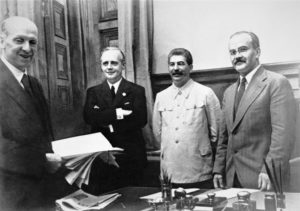
According to the Moscow pact on 23 August 1939, Stalin assured Hitler that he could conquer and occupy Poland as well as take Lithuania, so that the Soviets could take advantage of it in such a great situation. And thus the Soviets took over: a huge part of Poland (East of the rivers Narew-Wisła-San), Latvia, Estonia and Finland. After modifying the first agreement, which replaced the agreement of September 28, the Soviet Union robbed over 190,000 km2 from Poland. One needs to add 55,000 km2 from Lithuania, 65,000 km2 from Latvia and 45,000 km2 from Estonia and Romanian Bessarabia 45,000 km2. Finland, granted to the Soviets, was not conquered. In total, the Molotov-Ribbentrop Pact gave the “homeland of the proletariat” 400,000 km2 of territorial gains. Hitler’s Germany seized 188,000 km2 – only at the expense of the Polish state. The comparison of these numbers is quite meaningful especially if we consider that the defeat of the Polish army was the work of German troops.
*
It is time for three conclusions of a more general nature:
(1) Every nation has the right to its own history – to reinterpret it all over again. The Russians should not expect us to recognize their point of view, nor should we, Poles. have the right to think that our view will be adopted by the Russian people. Only facts matter – and they are indisputable. Certainly “the past cannot be left to historians” (as Lithuanian Professor Alvydas Nikžentaits once said) . Leaders of countries are instrumental in shaping collective historical consciousness. Of course, Vladimir Putin has the right to use it, just like any other leader. However lies and insinuations should not be the only “commodity” the leader offers. And meaningful examples of this tactic – which should be emphasized once again – are statements about the voluntary joining of the Baltic States to the Soviet Union and the responsibility of Polish leaders for the failure of the Allied efforts to win the USSR to fight Germany. The same should be said about the need to seek secret agreements between the German Reich and other countries before the Second World War (implicitly: between Berlin and Warsaw);
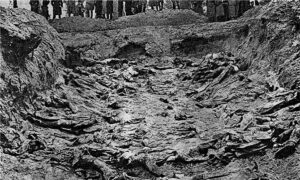
(2) The basic mechanism of Russian historical policy is based on proven Soviet tactics that are still in use. What I mean are fictitious parallel events that Moscow uses when it needs to defend itself. When, in the Gorbachev era, it turned out that it was impossible to further hide the responsibility of the USSR for the Katyn massacre, the decision was made to find some “anti-Katyn” argument on the Polish side. And so the Soviet (today Russian) side began to talk about the murder of Soviet prisoners of war after the end of the 1919–1920 war. And when the Polish voice could be heard speaking increasingly loudly about the tactical alliance of the two totalitarian dictators (Hitler and Stalin) in Moscow, a decision was made to claim that the Second World War broke out following the seizure of a scrap of Cieszyn Silesia. It can be assumed that if a similar situation happened to Russia in the future (in case Russia had to defend itself), they would behave in the same defensive way;
(3) The article in “National Interest” brings absolutely nothing that we did not know, both in terms of interpretation and facts. Any statements about archival searches in connection with the preparation of the text also mean nothing. The invitations to cooperation of historians made by Putin have the same value. The best proof of this is the fact that, despite the arrangements, the Russians broke off cooperation with the Polish side regarding the preparation of a joint edition of documents for Polish-Soviet relations in 1918–1945. Instead, they published their own archival files, silently departing from the generally established concept, although it was the subject of talks.
Author: Marek Kornat
Translation: Alicja Rose & Jessica Sirotin

